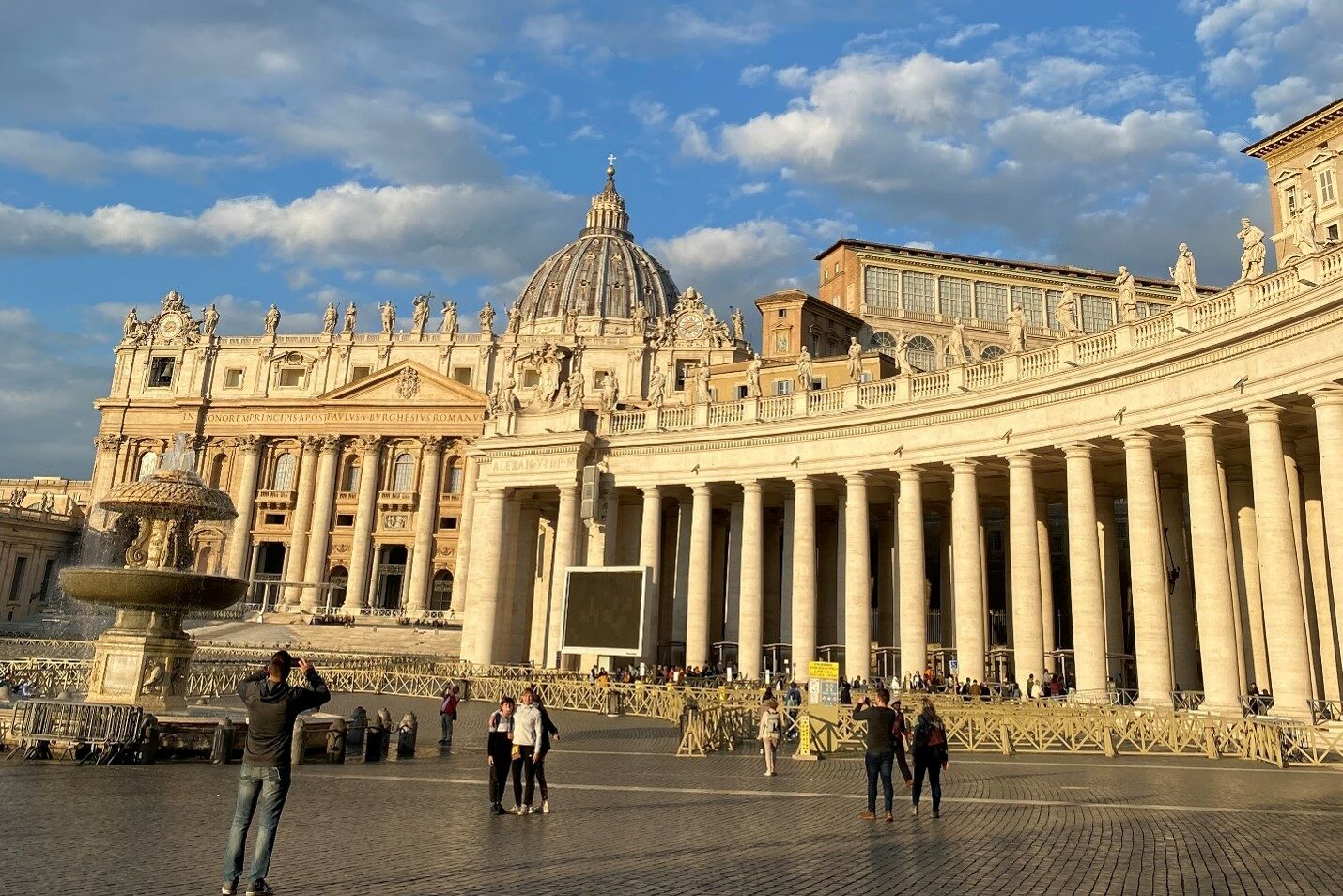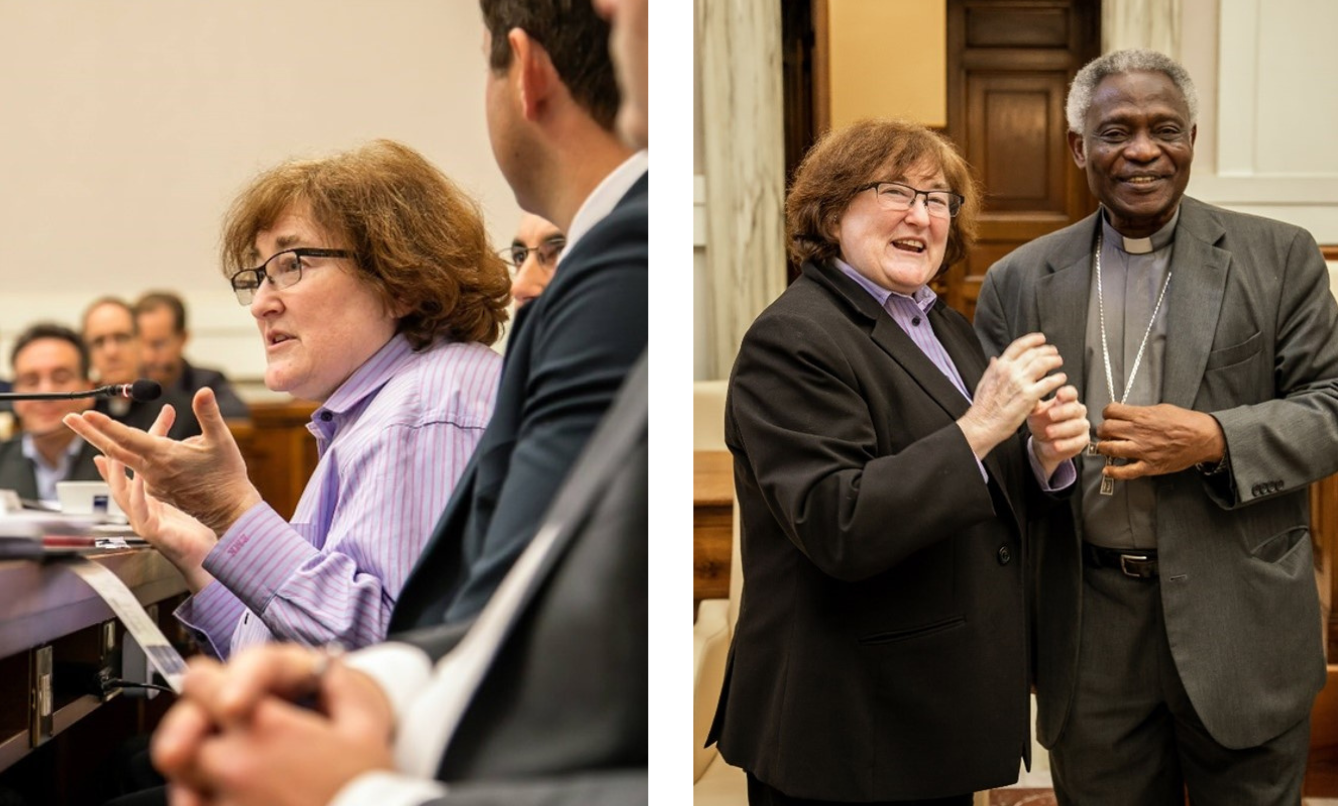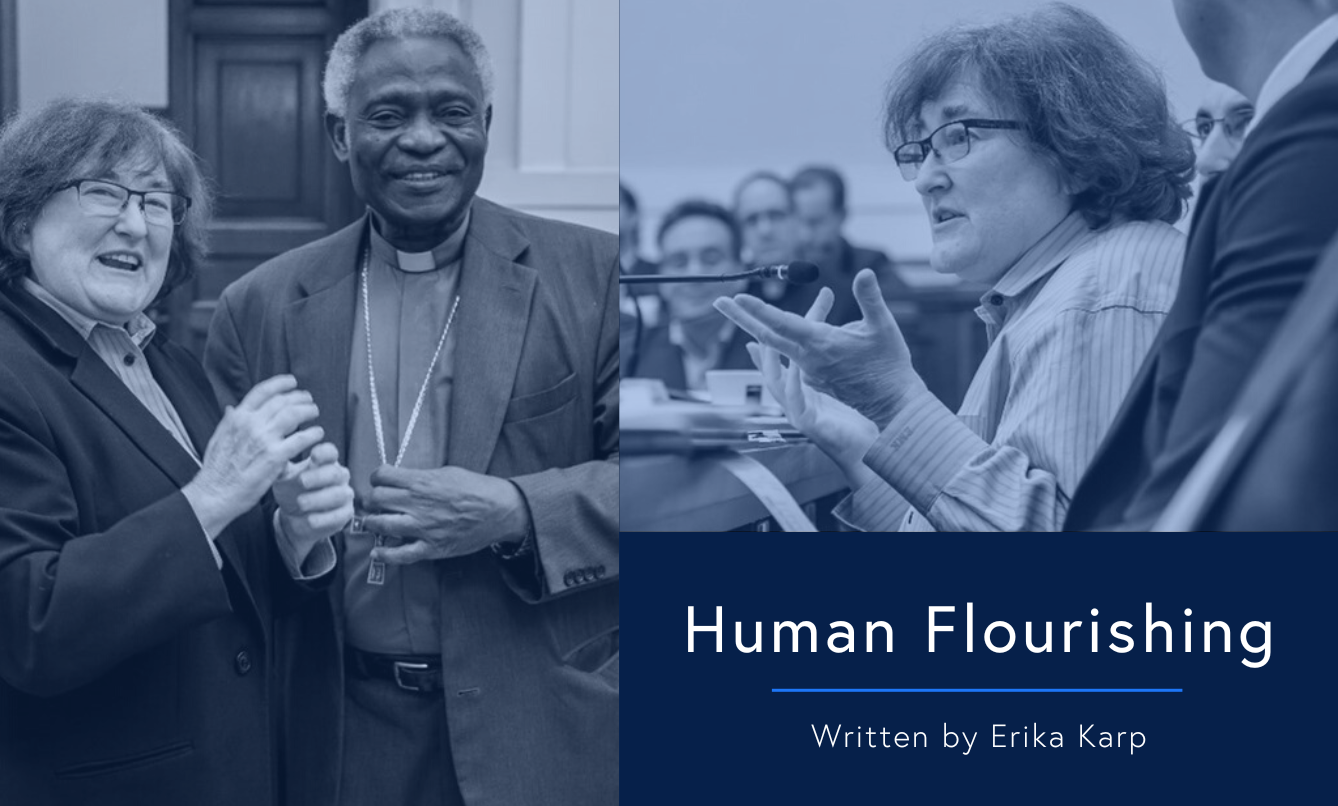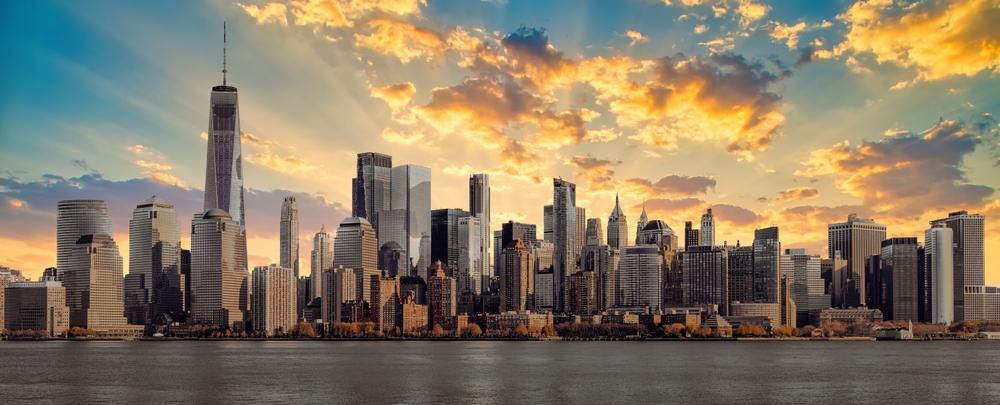I recently had the tremendous honor of participating in the 2022 Human Flourishing Forum. This intimate group of industry thought leaders, academics, philanthropists, financiers, and faith leaders gathered at the Vatican’s Pontifical Academy of Sciences for the serious purpose of figuring out “how to build a civilization that ensures every person has the potential to realize their full potential, to flourish.”
It was truly inspiring to be among such an interdisciplinary, successful group of human beings with such diversity, integrity, and high purpose. And in what might be a global first, this gay Jewish woman had the opportunity to quote Talmud and offer hamotzi at a luncheon at the Vatican. The sense of connectedness and belonging at this convening was extraordinary. (Click here for a replay of the panel I participated in, How a common human flourishing framework could benefit business and impact investors.)

The forum was co-sponsored by Harvard University’s Institute for Quantitative Social Science and Humanity 2.0, a nonprofit organization “focused on identifying and removing the most significant impediments to human flourishing through technology, media, and thought-leadership, in collaboration with public, private and faith based organizations.” Attendees included stakeholders from across all sectors of society, who discussed and debated solutions to specific human challenges.
Among those working on both qualitative and qualitative solutions to the challenge was Fr. Ezra Sullivan, OP, who presented a multidimensional study supporting a framework capturing human flourishing on an individual, communal, and spiritual level. We learned from Economist Jim Ritchie-Dunham, who argued that economic models built around scarcity will not allow for the progress we need to achieve an inclusive and regenerative economy. And we were privileged to work with the Right Rev. Dr. Carmen Lansdowne, Moderator of The United Church of Canada, who is the first indigenous leader of a religious order. Her understanding of both humanity and capitalism is pragmatic and alarming, yet hopeful.

Source — Humanity 2.0
The session closed with Cardinal Peter Turkson, a key architect of Laudato Si, the 2015 Encyclical Letter in which Pope Francis laid out the moral imperative of climate action. Cardinal Turkson noted how perfect a venue The Pontifical Academy of Sciences had been. It is the only supranational academy of sciences in the world, and its roots date back to 1603. The academy’s mission is to “honour pure science wherever it may be found, ensure its freedom and encourage research for the progress of science.” It is where Laudato Si was created, and its goals center on using science to the greatest benefit of the planet. At the academy, it is explained that “there is no tension between faith and science.”
And to us, there need be no tension between capitalism and financial inclusion. There need be no tension between impact investing and economic returns. And there need be no tension between the analysis of corporate environmental, social and governance performance and shareholder value creation. There just needs to be research, respect, and collaboration.
Please see PDF for important disclosures.







